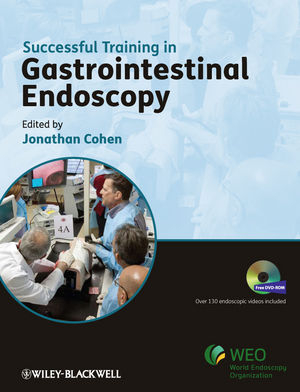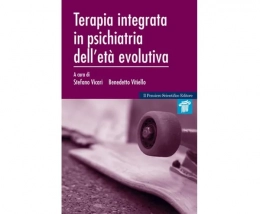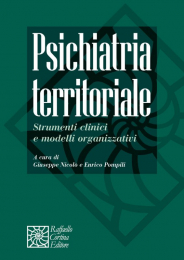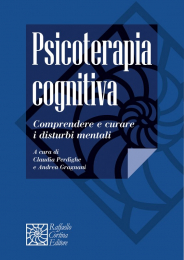Non ci sono recensioni
Endoscopy is the primary diagnostic method for GI complaints and is replete with an ever expanding array of therapeutic capabilities. Successful Training in Gastrointestinal Endoscopy will provide all gastroenterologists with the exact set of skills required to perform endoscopy at the highest level. GI trainees will find it a crucial primer for learning endoscopy; teachers will find it a guide to understand how best to develop the expertise of their students; and experienced practicing gastroenterologists will find it a useful refresher tool to brush up on their existing endoscopic skills and to familiarise themselves with new procedures, including issues of safety and competence while performing them.
With contributions from internationally recognized leaders in endoscopy education and an endorsement by the World Organisation of Digestive Endoscopy, each chapter will examine the specific skill sets and procedure related tasks which must be mastered when learning a particular technique, including:
- Specific descriptions of accessories required
- Standard training methods for the procedure
- Optimal utilization of novel learning modalities such as simulators
- Quality measures and objective parameters for competency
- Available tools for assessing competency once training has been completed
In addition to the 400 high-quality, outstanding colour photos, the book will come with a DVD containing over 130 annotated teaching videos of both actual procedures and ex-vivo animal model simulations. These videos will illustrate, in a step by step fashion the proper techniques to be followed, highlighting clinical pearls from the experts and the most common mistakes to avoid.
Successful Training in Gastrointestinal Endoscopy will be a key purchase for all gastroenterologists, whether in training or experienced, to allow them to develop and perfect their endoscopic skills. It will be a particularly useful guide for those interested in mastering the latest new techniques and procedures and an essential reference for teachers of endoscopy and students alike.
List of Contributors, vii
Foreword, xi
Preface, xii
Acknowledgements, xiii
Part I The Evolution of Basic Principles and Practice.
1 Training in Endoscopy: A Historical Background, 3
Jonathan Cohen & David A. Greenwald
2 How Endoscopy is Learned: Deconstructing Skill Sets, 16
Gerald M. Fried & Kevin A. Waschke
3 Training to Become a High-Quality Endoscopist: Mastering the Nonprocedural Aspects, 22
Sahar Ghassemi & Douglas O. Faigel
Part II Training in the Major Endoscopic Procedures.
4 Esophagogastroduodenoscopy (EGD), 31
Lauren B. Gerson & Shai Friedland
5 Colonoscopy, 42
Robert E. Sedlack
6 Endoscopic Ultrasound, 73
Thomas J. Savides & Frank G. Gress
7 ERCP, 85
Joseph Leung & Brian S. Lim
8 Capsule Endoscopy, 97
Felice Schnoll-Sussman & David E. Fleischer
9 Deep Enteroscopy, 109
Patrick I. Okolo & Jonathan M. Buscaglia
10 Choledochoscopy and Pancreatoscopy, 116
Jeffrey H. Lee & Peter Kelsey
11 Principles of Electrosurgery, 125
David L. Carr-Locke & John Day
12 The Use of Fluoroscopy for Gastrointestinal Endoscopy, 135
Douglas G. Adler
13 Pediatric Endoscopy, 143
Michael A. Manfredi & Jenifer R. Lightdale
Part III Training in Specific Techniques.
14 Contrast-Enhanced Endoscopy—Chromo and Optical Contrast Techniques, 159
Anna M. Buchner, Prateek Sharma, & Michael B. Wallace
15 GI Hemostasis, 170
Brian J. Dunkin, Kai Matthes, & Dennis M. Jensen
16 Luminal Dilation Techniques (Strictures, Achalasia, Anastomotic, IBD), 188
Syed M. Abbas Fehmi & Michael L. Kochman
17 Foreign Body Extraction, 197
Gregory A. Cote, Steven A. Edmundowicz, & Sreenivasa S. Jonnalagadda
18 Endoscopic Mucosal Resection and Endoscopic Submucosal Dissection, 204
Juergen Hochberger, Elena Kruse, Detlev Menke, Edris Wedi, SongSa Dammer, Peter Koehler, & Karl-Friedrich Buerrig
19 Mucosal Ablation Techniques, 237
John A. Dumot, Bruce D. Greenwald, & Virender K. Sharma
20 Complicated Polypectomy, 246
Jerome D. Waye & Yasushi Sano
21 Natural Orifice Translumenal Endoscopic Surgery (NOTES R ), 261
Kai Matthes, Mark A. Gromski, & Robert Hawes
22 Bariatric Endoscopy, 270
Sohail N. Shaikh, Marvin Ryou, & Christopher C. Thompson
23 Repair of Mucosal Defects: A Primer on Endoscopic Closure of Gastrointestinal Perforations, 282
Gottumukkla S. Raju
24 Esophageal, Gastroduodenal and Colorectal Stenting, 288
Peter D. Siersema
25 ERCP Management of Complicated Stone Disease of the Bile Duct and Pancreas, 300
Nithin Karanth, Jonathan Cohen, & Gregory B. Haber
26 ERCP Management of Malignancy: Tissue Sampling, Metal Stent Placement and Ampullectomy, 313
Douglas A. Howell
27 Sphincter of Oddi Manometry, 324
Evan L. Fogel, Stuart Sherman, & Glen A. Lehman
28 Pseudocyst Management, 332
Michael J. Levy & Todd H. Baron
29 Enteral Access Techniques: Percutaneous Endoscopic Gastrostomy and Jejunostomy, 341
James A. DiSario
30 The Endoscopic Management of Immediate Complications of Therapeutic Endoscopy, 351
David A. Greenwald & Martin L. Freeman
Part IV Challenges for the Future.
31 Assessing Manpower Needs in Gastroenterology and Digestive Endoscopy: Lessons from the Past and Implications for the Future of Endoscopic Training, 359
Girish Mishra & Alan Barkun
32 Providing Resources and Opportunities for Retraining for Practicing Endoscopists, 367
John L. Petrini
33 Evolving Role of GI Societies and Industry in Training Endoscopists to Perform New Techniques: Supporting the Process and Setting the Standards, 372
John A. Martin & Christopher J. Gostout
34 The Importance of Skills Assessment and Recording Personal Outcomes in the Future of Training, 380
Peter B. Cotton & Roland M. Valori
Index, 385




